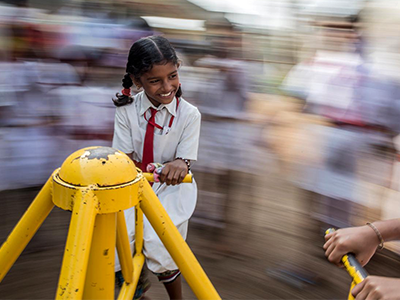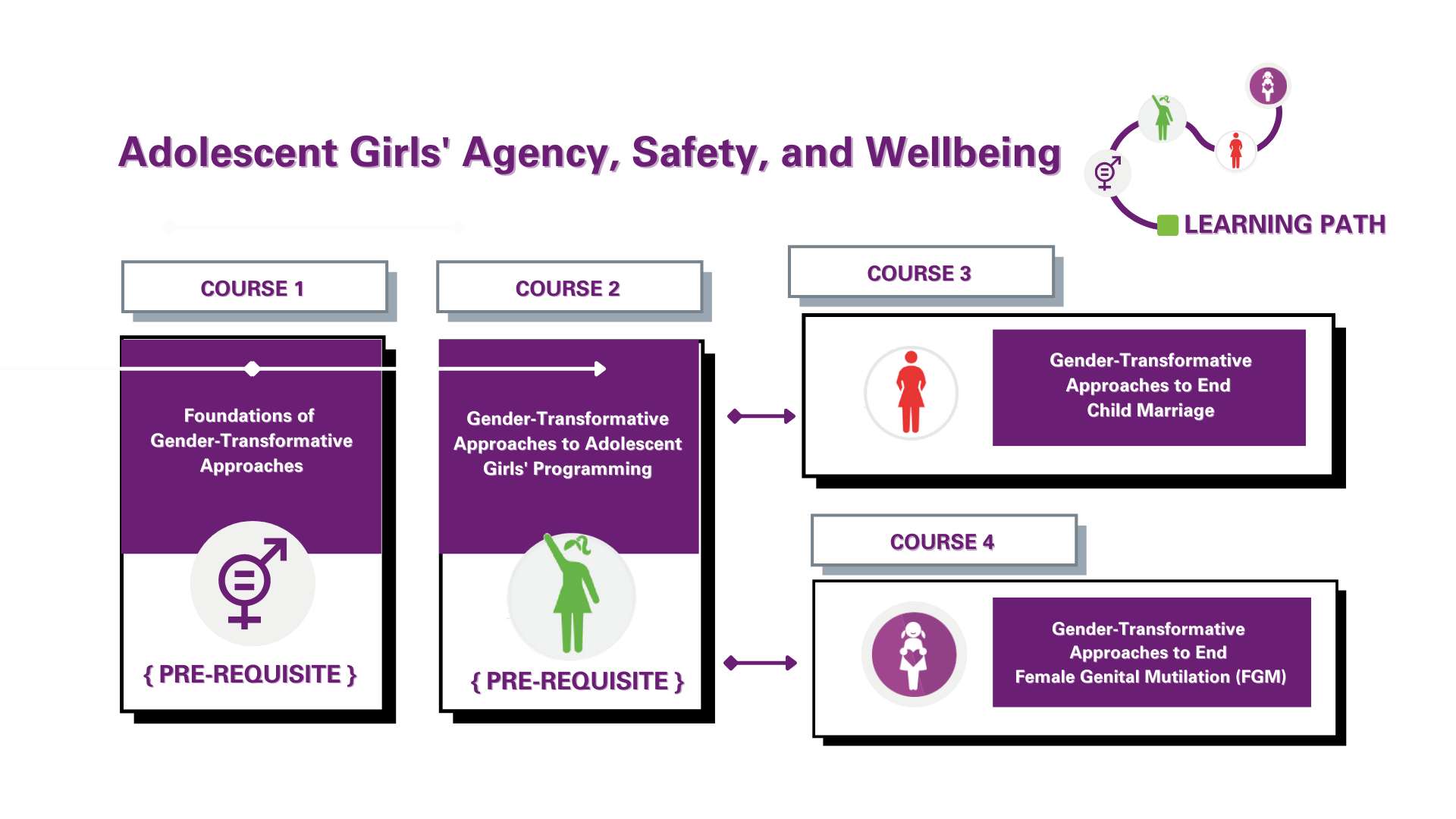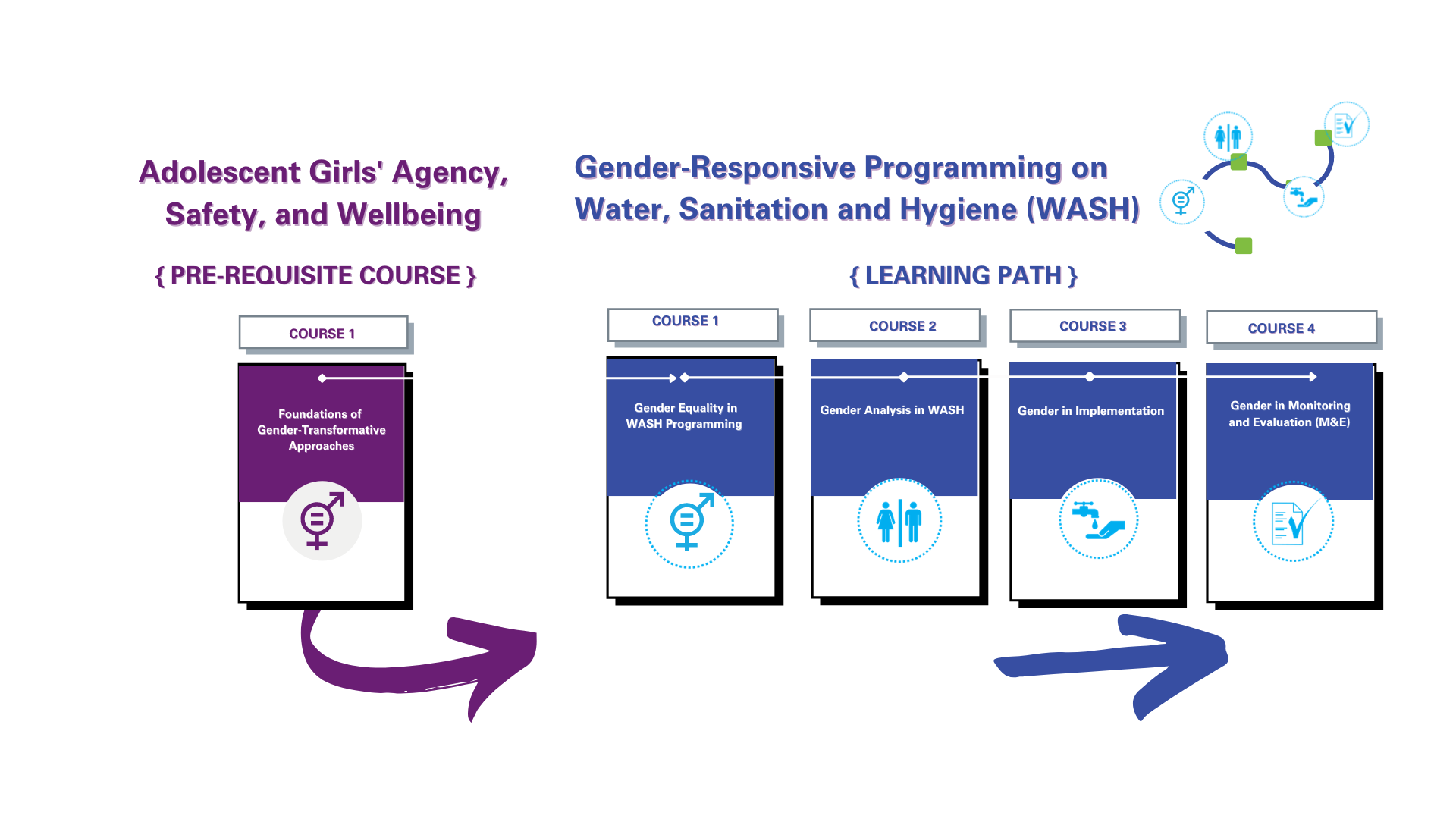Cover photo: © UNICEF/UNI177643/Dhiraj Singh
About the course
Welcome to ‘Foundations of Equitable Approaches to Achieve More Equal Outcomes and Advance Gender Equality' the first course of this learning path.
Gender-transformative approaches to programming are key to building lasting, positive development outcomes based in equality among women, men, girls, boys and gender minorities. These approaches seek to engage communities in examining how gender inequalities intersect with other inequalities. They create opportunities to challenge gender norms, promote positions of social and political influence for women, and address power imbalances between different genders.
Such programming is often complex and nuanced, particularly where the goal is changing negative attitudes and eliminating harmful practices. Empowering marginalized women and girls is central to gender-transformative approaches. Working with men and boys as allies and champions of change by challenging harmful notions of masculinity is also vital.
This course will help you understand what makes a programme gender transformative, why it matters for quality and results-based programming, and what strategic adjustments can be made to your programme so that it becomes more gender transformative. This course also lays the foundation for subsequent courses of this learning path that cover programming for adolescent girls.
Learning objectives
After completing this course, participants will be able to:
- Explain gender-transformative approaches and why they matter
- Explain the gender continuum
- Identify where a programme sits within the gender continuum
- Articulate the distinction between gender-responsive and gender-transformative programming
- Apply an understanding of multi-sectoral interventions and the socio-ecological model for shifts in unequal power relations between genders.
Audience
UN personnel, government entities and non-governmental organizations
Length
This course is approximately 45 minutes in length.
Methodology
This course is presented as a set of 'micro-learning' modules. Modules feature a mix of interactive lessons and learning activities, readings, videos, resources and more. This course includes a final quiz. Score 80 per cent on the final quiz to pass this course.
Modules in this course include:
1. Let's cover some basics
2. Check your biases
3. Gender-transformative 101
4. Classify the intervention
5. Socio-ecological model
6. Evidence
7. Measuring the Change
8. Course Assessment
9. Course Evaluation & Certificate
Accessibility note: Videos have closed-captioning and/or a text-based transcript. Click the three vertical buttons in the lower right hand corner of the video player to turn captions on or off.
Completion status: When you have completed each section of the course, make sure the click the radio button to indicate completion. A green checkmark indicates the item is complete.
How to mark a lesson complete.pdf
Structure
- This course is part of the wider learning path, Adolescent Girls' Agency, Safety, and Wellbeing Playlist'.
- This course is a prerequisite for the learning path, Gender-Responsive Programming on Water, Sanitation and Hygiene (WASH) Playlist.
For any questions about the course or technical issues, please contact agora@unicef.org


